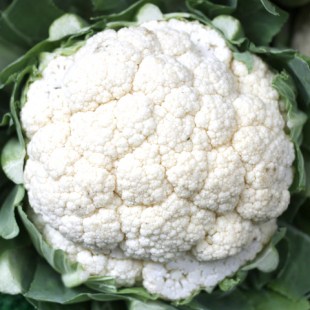Sulphoraphane, a sulfur-containing chemical compound, is one of the most potent natura are reduced with sulphoraphane intake. In addition to its cancer chemopreventive activity, this chemical compound can also inhibit tumor growth, kill cancer cells and improve cancer survival rates. Sulphoraphane also prevents cataracts and high blood pressure.
Can I get enough of sulphoraphane in my food?
Sulphoraphane is ideally obtained from cruciferous vegetables, such as broccoli sprouts, cabbage, Brussels sprouts, cauliflower, bok choy, collards, mustard, turnip and watercress. A daily serving of cruciferous vegetables is sufficient to protect your cells from cancer.
If I’m to supplement with sulphoraphane, in what form should I take it? What are the ‘rules of engagement’?
Sulphoraphane supplements can come in tablet, capsule and powder forms. It is mostly recommended to take broccoli-sprout extracts that contain sulphoraphane for supplementation.
What dose of sulphoraphane should I take?
The recommended daily intake for sulphoraphane is yet to be established but most providers recommended 200 to 400 mcg of sulphoraphane daily.
Are there any risks with supplement with sulphoraphane?
At this time, there is no known adverse effects resulting from sulphoraphane supplementation. Although it is generally safe, it is strongly suggested to check with your physician before taking sulphoraphane supplements.
Are there any speciall cancer fighters to date.
A class of isothiocyanate, sulphoraphane has shown to inhibit the development of tumor and cancer cells. Aside from its anticancer properties, sulphoraphane is also an effective antibacterial agent against Helicobacter pylori, which causes stomach ulcers and stomach cancer. High concentrations of sulphoraphane are found in broccoli sprouts and other cruciferous vegetables.
Why do we need sulphoraphane as we age? What are its actions and will it slow aging or prevent disease?
As you age, your cells are increasingly exposed to harmful chemicals and particles that cause tissue injuries and cellular aging, consequently increasing your risk of chronic and degenerative diseases. Free radicals, byproducts of cellular metabolism, can be the most fatal of all particles. Excessive free radicals cause irreversible cellular damage by destroying cellular membranes and by altering your DNA. These significant cellular changes can increase your risk of cancer.
Research shows that sulphoraphane has the ability to enhance your liver’s ability to detoxify cancer-causing substances that accumulate as you age. More specifically, sulphoraphane strongly stimulates the activation of Phase II detoxification enzymes. These enzymes effectively get rid of toxic substances and neutralize free radicals, protecting you from a wide variety of cancers. The incidences of breast, stomach, lung and colon cancers requirements when I take sulphoraphane?
There is no known special requirement when taking sulphoraphane supplements.
Does sulphoraphane need other compounds to accompany it for optimal absorption?
Although sulphoraphane has beneficial effects alone, its cancer fighting properties are increased thirteen fold when it is combined with selenium.
If I supplement with sulphoraphane, do I need to take this in divided doses?
Sulphoraphane dosing has not been established. It is suggested to follow your physician’s instructions or carefully read the instructions indicated on the label.
Can I test so as I know whether I’m deficient in sulphoraphane or to ascertain that I’m taking the correct dose for me?
Sulphoraphane is not an essential nutrient; thus, deficiency states do not exist.
What is the best source of sulphoraphane?
Sulphoraphane is one of the most potent chemical compounds that fight cancers. Although sulphoraphane supplements are now readily available, sulphoraphane is best obtained from fresh broccoli sprouts, which contain 30 to 50 times the concentration of sulphoraphane found in mature broccoli.
Last Reviewed: 20-Sep-2011
Ann-Mary Amber
Latest posts by Ann-Mary Amber (see all)
- This is why gut health is so important - 24/02/18
- Best antioxidants for skincare - 18/09/17
- CoQ10 health benefits - 09/07/17






